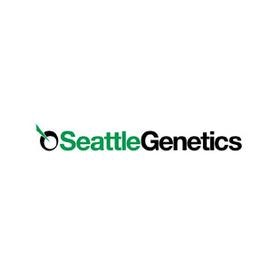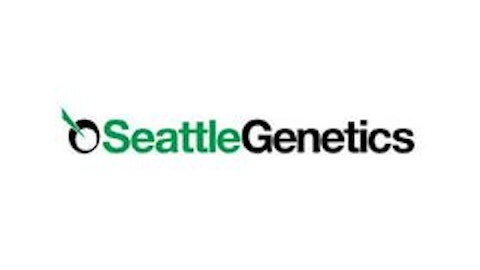The cancer world has been abuzz after an exciting ASCO conference. Bristol Myers Squibb Co. (NYSE:BMY) presented really promising updates for its PD-1 inhibitor nivolumab in late-stage melanoma, leading one Citigroup Inc. (NYSE:C) analyst to declare “the beginning of the end of cancer.” With Merck & Co., Inc. (NYSE:MRK) and Roche also boasting PD-1 inhibitors we can only hope someone has a magic bullet. But is there space in this massive market for the smaller biotechs with other innovative immunotherapies?
A brief science spiel
Antibodies are proteins produced by the immune system to recognize pathogens. Their structure allows them to recognize specific chemical signatures, or antigens, and bind to them tightly. Normally, this allows the immune system to recognize potentially dangerous pathogens or cancer cells. The following companies have engineered antibodies for a different purpose: to bind to specific targets and deliver drugs that might treat cancer.
ImmunoGen, Inc. (NASDAQ:IMGN)
ImmunoGen, Inc. (NASDAQ:IMGN)‘s proprietary technology is a chemical linker that tethers an antibody to a cytotoxic drug. The antibody binds to targets that only appear, or appear in much higher levels, on the surface of cancer cells, and delivers the drug as a ‘targeted antibody payload’, or TAP. The utility of TAPs is theoretically only limited by the ability to engineer antibodies against specific molecular targets – targets which are being identified at a faster rate thanks to improving genomics technologies.
ImmunoGen, Inc. (NASDAQ:IMGN) currently has three wholly owned TAP treatments for small-cell lung cancer (IMGN901), non-Hodgkin lymphoma (IMGN529), and various solid tumor cancers (IMGN853). IMGN901 has progressed the farthest in clinical trials, and is currently being compared with standard-of-care in Phase II.
The majority of Immunogen’s pipeline, and all of its revenue, comes from licensing agreements with other firms for use of the TAP design. ImmunoGen, Inc. (NASDAQ:IMGN) has partnerships with Roche, Bayer, Sanofi SA (ADR) (NYSE:SNY), Biotest, Amgen, Inc. (NASDAQ:AMGN), and most recently Novartis AG (ADR) (NYSE:NVS), each yielding milestone payments and royalties upon commercialization. Roche funded R&D and commercialization for Immunogen’s only marketed drug, Kadcyla, which was approved for Her-2-positive breast cancer in February.
Despite a $1.4 million loss in the most recent quarter, Immunogen’s milestone revenues increased partly due to the approval of Kadcyla. Unfortunately Roche will only pay ImmunoGen, Inc. (NASDAQ:IMGN) 3% royalties on Kadcyla sales – after less than one quarter on the market it remains to be seen how much cash that amounts to. Instead Immunogen will continue to license its TAP technology to add to the $206 million in cash (and no debt) it is using to fund IMGN901 development.
Seattle Genetics, Inc. (NASDAQ:SGEN)
Seattle Genetics, Inc. (NASDAQ:SGEN)’s platform is similar to Immunogen’s. ‘Antibody-drug conjugates’, or ADCs, are analogous to TAPs in their ability to deliver cytotoxic drug elements directly to cancerous tissues using engineered antibodies. Like Immunogen, most of these antibodies are developed externally, and Seattle Genetics licenses its ADC technology for drug development. Seattle has a more robust pipeline than Immunogen, with many collaborating partners and 21 drugs in 31 clinical trials, plus more in preclinical development. In Q1, licensing agreements accounted for ~36% of revenue.
Unlike its peers, Seattle Genetics, Inc. (NASDAQ:SGEN) has recognized significant revenues from the sale of its only approved drug, Adcetris. Adcetris was approved in 2011 as a second-line treatment for Hodgkin lymphoma, and put up $33.9 million in US and Canadian sales in the most recent quarter, a slight drop from the same period last year. Millenium Pharmaceuticals has commercialization rights abroad. Additionally, Seattle Genetics, Inc. (NASDAQ:SGEN) is seeking to expand the label for Adcetris with Phase 3 trials using the drug as front-line treatment for Hodgkin and T-cell lymphoma, and a Phase 2 trial for non-Hodgkin lymphoma.
Celldex Therapeutics, Inc. (NASDAQ:CLDX)
Celldex Therapeutics, Inc. (NASDAQ:CLDX) has chosen to take a different approach to both its science and its business model. I recently wrote a piece detailing the principles and excitement behind Celldex’ glioblastoma drug, rindopepimut. Rather than target cancer cells directly, Celldex’ ‘Antigen Presenting Cell’ directed immunotherapy uses antibodies targeted against receptors on dendritic cells. These antibodies are tethered to segments of ‘antigen’ that appear on the surface of cancer cells. Dendritic cells internalize the antibody/antigen complex, and use the antigen to train T-cells to specifically attack cancerous tissue.
On the business side, Celldex Therapeutics, Inc. (NASDAQ:CLDX) has chosen to function more independently than its peers, though it is involved in a promising collaboration with Seattle Genetics for breast cancer drug CDX-011. Celldex hasn’t yet recognized positive operating cash flow, but a $114 million capital raise in the last quarter should provide enough cash to complete trials for rindopepimut. With just a $1.3 billion market cap (as of June 12) and full ownership of its lead drug candidate, Celldex Therapeutics, Inc. (NASDAQ:CLDX) may be a more likely takeover target than its peers. Companies boasting promising PD-1 inhibitors may choose to explore Celldex’ targeted approach in concert with PD-1 treatment, and would be entitled to full revenues from any marketed drugs.
The big picture…
…is actually a series of small pictures lumped under the cancer umbrella. The sheer diversity of cancer subtypes and causes makes a single cure impossible. The targeted therapeutics in development by these companies may find a niche among the broader scope of PD-1 inhibitors. Moreover, the therapeutic platforms developed by each of these companies is flexible enough for continuous innovation and adaptation – a necessary component of successful financial growth.
Celldex Therapeutics, Inc. (NASDAQ:CLDX)’s platform is likely the most flexible, as it relies on antigen isolation as opposed to isolation and subsequent antibody design. Seattle is the farthest along in terms of development, with Adcetris approval and continued label expansion. It remains to be seen, though, if tumor-directed drug delivery (Immunogen and Seattle Genetics, Inc. (NASDAQ:SGEN)) or immune cell-mediated treatment (Celldex Therapeutics, Inc. (NASDAQ:CLDX)) is more effective. For patients and investors, here’s to hoping all three find continued success.
Seth Robey has no position in any stocks mentioned. The Motley Fool recommends ImmunoGen and Seattle Genetics.
The article A Trio of Cancer Immunotherapy Innovators originally appeared on Fool.com.
Copyright © 1995 – 2013 The Motley Fool, LLC. All rights reserved. The Motley Fool has a disclosure policy.





